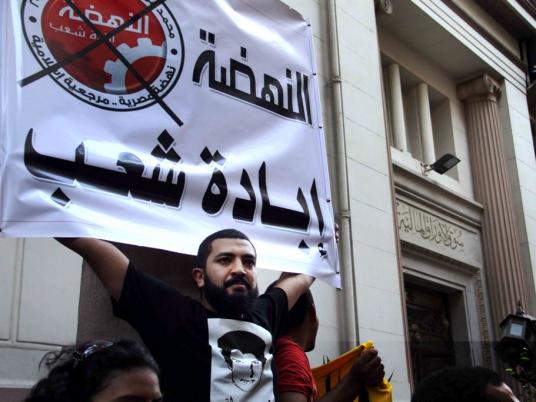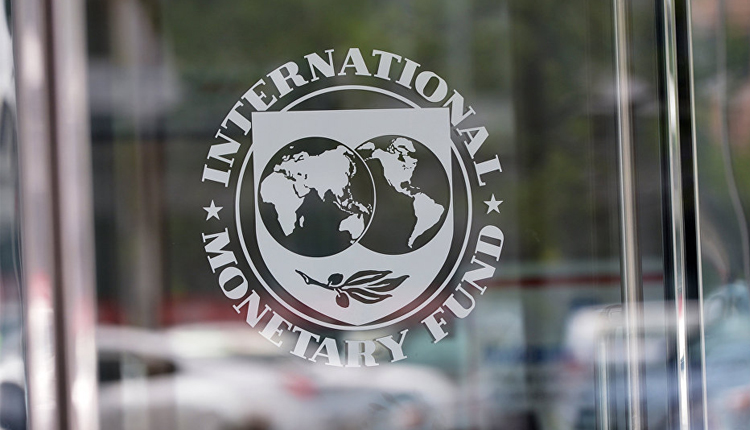
A number of political groups staged a march Monday evening from the Egyptian Stock Exchange building in downtown Cairo to the Cabinet building to voice their opposition to the US$4.2 billion loan from the International Monetary Fund.
Participants included members of the Karama Party, the Strong Egypt Party, the Socialist Popular Alliance Party, Kefaya, and others.
Former presidential candidate and rights activist Khaled Ali said the march aims to make citizens aware of the negative consequences of the loan, including raising the foreign debt by 50 percent and increasing allocations in the state budget to pay off the loan, which would affect subsidies, services and prices.
He added that the participants in the march reject the loan without community dialogue and an alternative economic plan to provide the necessary financial resources.
Ali warned of the lack of transparency regarding the IMF’s conditions and that the government would repay the loan from citizens’ pockets, noting that it would raise gas, water and electricity prices.
Participants in the march also demand that Prime Minister Hesham Qandil rationalize government spending as an alternative to foreign borrowing, lift energy subsidies to factories, and levy taxes on capital gains in the stock market to bridge the deficit.
Human rights organizations, political movements and trade unions had on Monday asked the prime minister to freeze loan negotiations with the IMF.
The Egyptian Initiative for Personal Rights, the Egyptian Center for Economic and Social Rights, the Popular Current and the Egyptian Federation of Independent Trade Unions said the negotiations are not transparent, nor is the government’s economic reform program.
They also said holding negotiations and making agreements without a parliament in place, while President Mohamed Morsy has legislative authority, violates the democratic principles of separation of powers and constitutional supervision of executive decisions.
They added that the government did not consult all civilian groups and political forces about the loan, which makes any feedback it received not representative of the whole Egyptian society.
The IMF had demanded total social consensus over the loan, especially as the austerity measures associated with it, such as the reduction of subsidies, could threaten the basic economic and social rights of the Egyptian people.
Edited translation from Al-Masry Al-Youm



